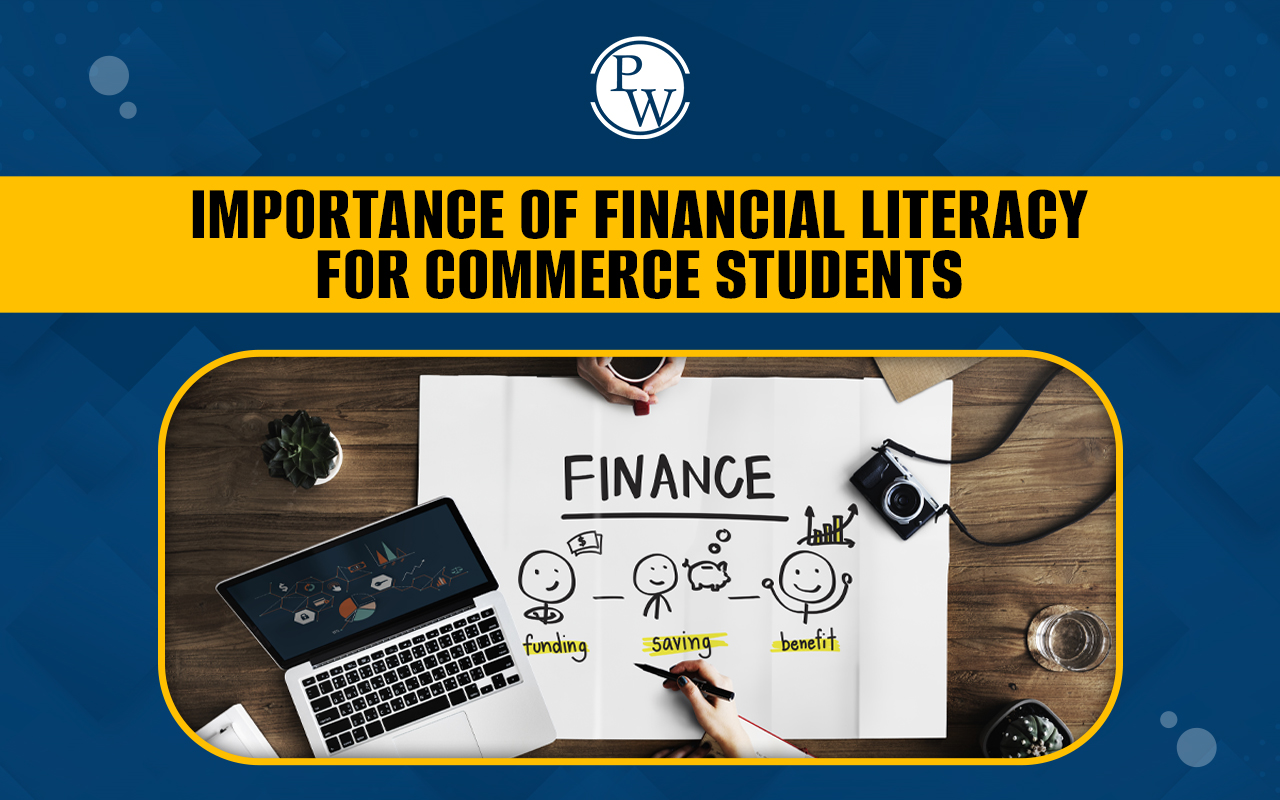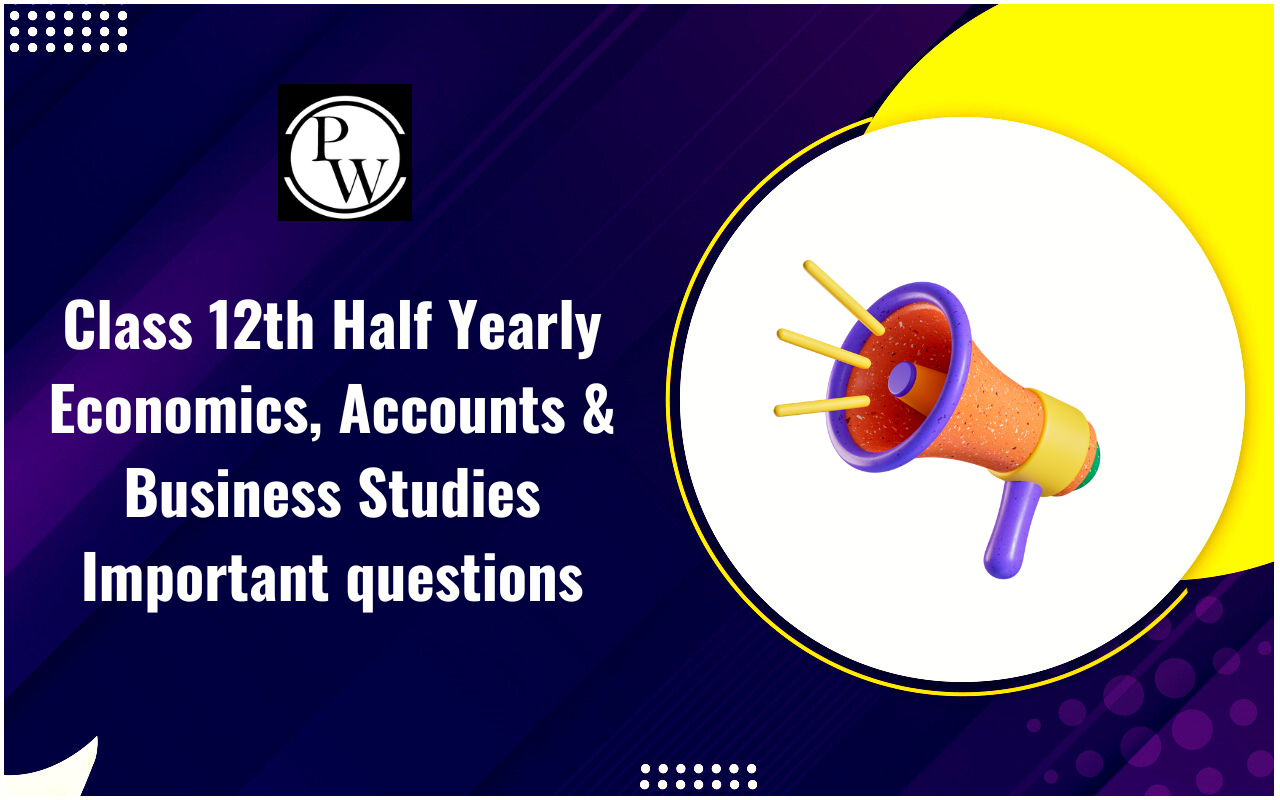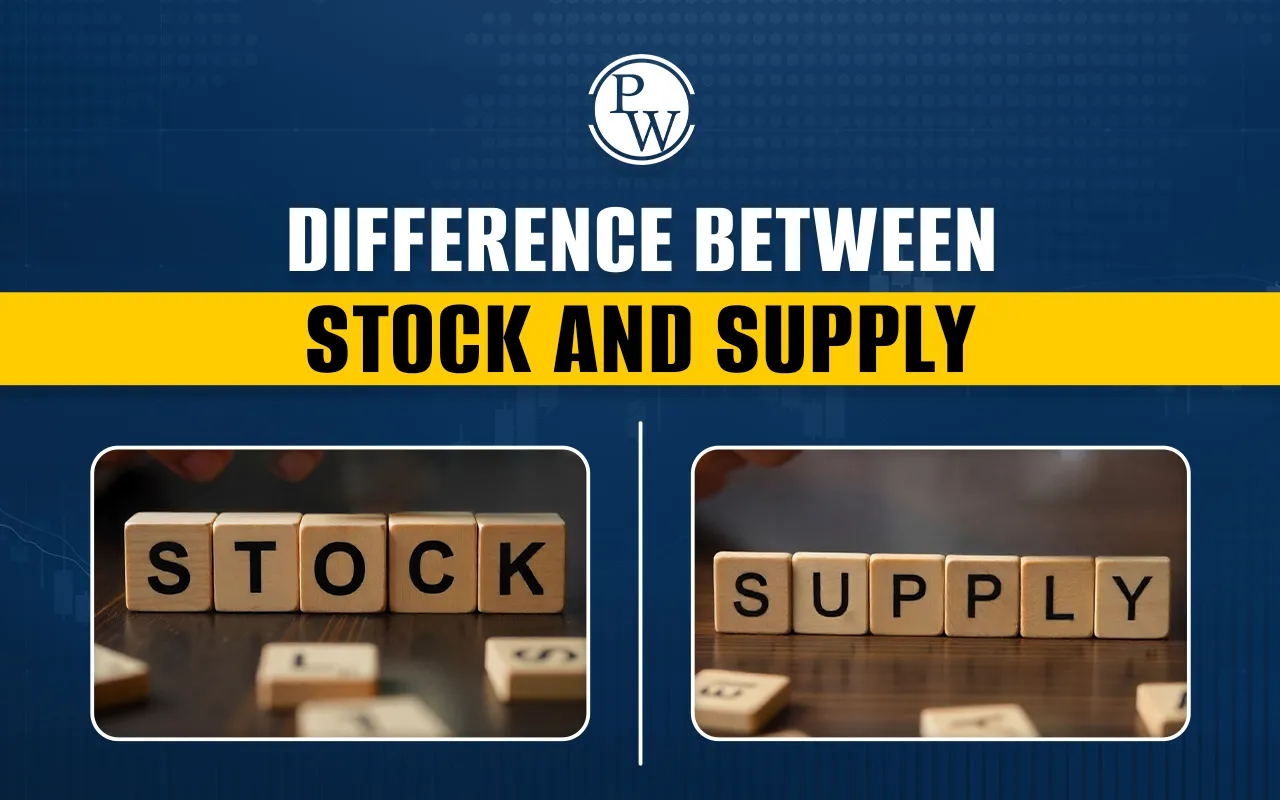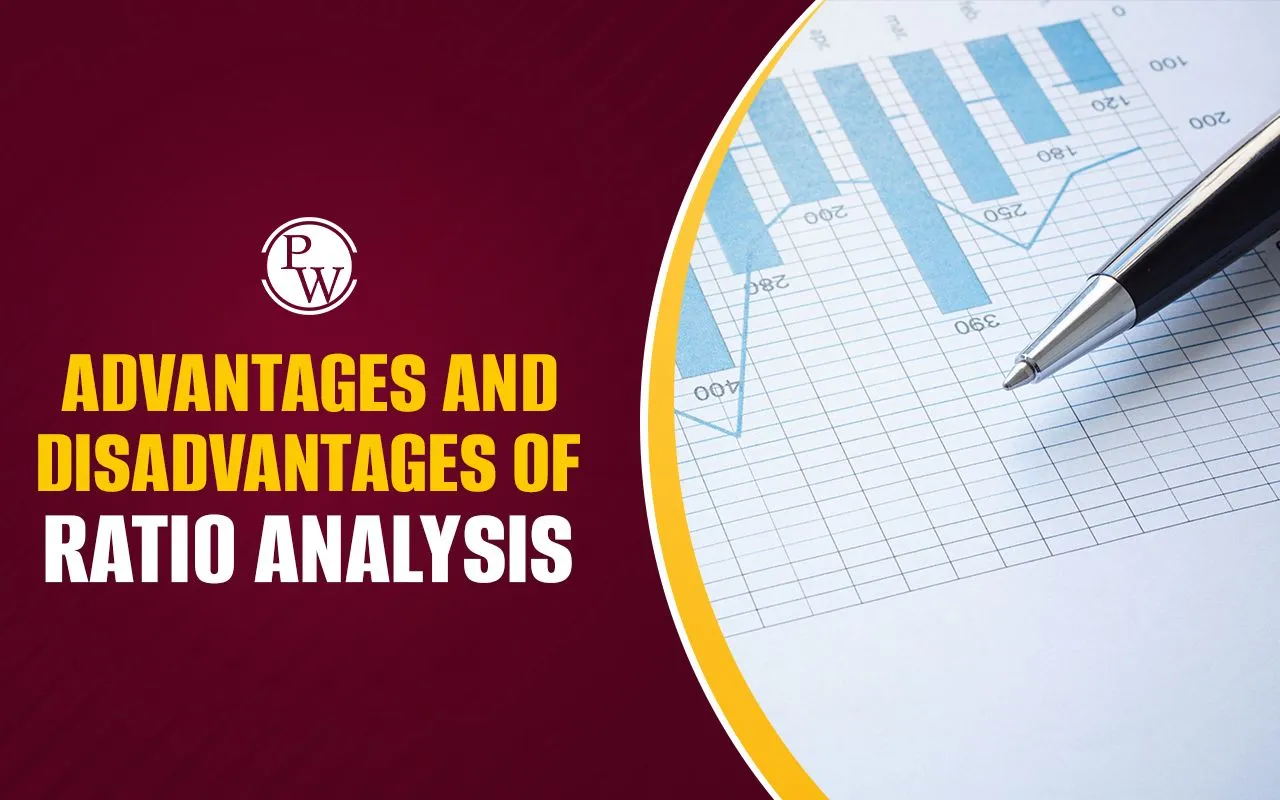

Financial literacy is an important skill for commerce students as it helps them understand and manage various aspects of finance, such as budgeting, saving, investing, and borrowing. Being financially literate means having the knowledge to make smart financial decisions and avoid common money mistakes. For students, this knowledge is key to managing their personal finances and preparing for their future careers in business and commerce.
Understanding financial literacy also allows Commerce students to confidently handle real-world financial challenges. This could include tasks such as managing student loans, credit cards, or future investments. In this article, we will discuss the importance of financial literacy for commerce students, its key components, and examples to illustrate its significance in everyday life.Components of Financial Literacy
Financial literacy refers to having the knowledge and skills to manage money effectively. Understanding key financial concepts helps individuals make informed decisions about their finances, reduce debts, save for future goals, and invest wisely.
Below we've mentioned some fundamental components of financial literacy that everyone should learn:
1. Budgeting
Budgeting is all about managing your money by balancing spending, saving, investing, and giving. A well-planned budget ensures that your income is used efficiently to cover expenses, pay off debt, and build savings. For example, if a student receives ₹10,000 a month, they can allocate ₹4,000 for essential expenses, ₹2,000 for savings, ₹1,000 for investments, and ₹1,000 for donations or other goals. Creating and sticking to a budget helps avoid overspending and ensures financial stability.2. Investing
To build wealth, it's essential to understand the basics of investing. This includes learning about interest rates, the stock market , risk management , and diversification. Diversifying investments across different assets, like stocks, bonds, or mutual funds, helps spread risk. For instance, instead of putting ₹50,000 in one stock, spreading it across various investment options will reduce the risk of loss. Financial literacy in investing enables individuals to grow their money over time and meet future goals, like buying a house or retiring comfortably.3. Borrowing
At some point in life, most people need to borrow money, whether it's a student loan, car loan, or home mortgage. Understanding how borrowing works is crucial to avoid falling into debt traps. Concepts like interest rates, repayment terms, and loan types need to be learned. For example, borrowing ₹1,00,000 at an interest rate of 5% per year means you must not only repay the principal but also an additional ₹5,000 each year in interest. Understanding these factors can help borrowers avoid high debt and manage loans effectively.4. Taxation
Taxes are an inevitable part of life, and being financially literate means understanding how taxes affect your income and expenses. There are different types of taxes, such as income tax, property tax, and capital gains tax, and each impacts your financial planning. For example, knowing that income from employment is taxed at a higher rate than income from investments helps people plan better and minimize tax liabilities. Financial literacy in Taxation allows individuals to manage their net income efficiently and save more.5. Personal Financial Management
Personal Financial Management is about combining all the above components—budgeting, investing, borrowing, and understanding taxes—to ensure financial security. It’s about making smart choices to balance your finances. For instance, paying off high-interest debt first, saving regularly, and investing in growth opportunities all contribute to better financial health. Personal financial management helps people avoid unnecessary financial stress and achieve long-term goals like purchasing a home or planning for retirement. Achieving a good understanding of these components helps improve financial literacy, empowering individuals to take control of their financial future with confidence.Also Read: Scope of Financial Management
Importance of Financial Literacy
Financial literacy is crucial for commerce students as it equips them with the skills needed to manage money effectively and make informed financial decisions. Understanding financial concepts can greatly enhance their ability to handle personal and professional finances, leading to a more stable and successful future. The benefits of financial literacy are numerous and impactful:- Improved Decision-Making: Financial literacy helps students make better decisions about spending, saving, investing, and borrowing. It ensures they understand the consequences of their financial choices and can plan accordingly.
- Better Money Management: With financial knowledge, students can manage their money and debt more effectively. This includes setting up and adhering to a budget, staying out of debt, and controlling spending.
- Achieving Financial Goals: Financial literacy empowers students to set and achieve financial goals. It provides the tools to plan, save, and invest wisely, which can lead to financial success and stability.
- Reduced Financial Stress: Understanding how to manage finances reduces anxiety about money. It prepares students for unexpected expenses and helps them feel more secure in their financial situation.
- Ethical Financial Choices: Being financially literate encourages ethical decision-making. Students are better equipped to make informed choices regarding insurance, loans, investments, and credit cards.
- Structured Budgeting: Financial literacy aids in creating a well-structured budget that aligns with financial goals. This helps students allocate their money wisely and avoid overspending.
- Emerging Financial Technologies: With the rise of digital finance tools like e-wallets, digital money, and peer-to-peer (P2P) lending, being financially literate means knowing how to use these technologies safely and effectively.
Also Read: Financial Accounting Principles
Example of Financial Literacy
Consider Raj, a college student majoring in business. Raj understands the importance of financial literacy for commerce students through his coursework and personal experiences. He has learned about personal budgeting, managing debt, saving for future goals, investing, and understanding taxes. For instance, Raj applies these concepts by creating a budget to manage his monthly expenses, saving part of his income for emergencies, and carefully evaluating credit card offers to avoid high interest rates. He also uses his knowledge of investing to start a small portfolio, planning for long-term goals like buying a home or retirement. Understanding topics such as interest rates, compound interest, and the impact of taxes helps Raj avoid accumulating excessive debt and make smarter financial decisions. This knowledge not only aids him in managing his finances effectively but also prepares him for various financial responsibilities he may encounter in his career and personal life.Strategies to Improve Financial Literacy for Commerce Students
Improving financial literacy is essential for commerce students, as it helps them manage their finances wisely and achieve their goals. Here are practical strategies combined with valuable resources to support their financial education: Create and Manage a Budget: Track monthly income and expenses using a budgeting tool or app. Categorize spending into fixed expenses (like rent or loan payments), discretionary spending (like dining out or shopping), and savings. Enroll in academic courses covering finance and accounting to understand budgeting principles. Use budgeting apps recommended in financial management books or publications. Pay Yourself First: Set aside a portion of your income for savings before covering other expenses. This approach helps you build an emergency fund or save for educational goals. Learn about saving strategies from books by financial experts like Robert Kiyosaki. Attend workshops or webinars that focus on personal finance management and savings techniques. Monitor and Improve Your Credit: Regularly check your credit report and score for accuracy. Use free credit monitoring services to keep track of your credit status and understand factors that affect your score. Access credit management information through academic courses or online resources. Review credit management books and articles from reputable publications for deeper insights. Manage and Reduce Debt: Use your budget to plan debt repayment, focusing on high-interest debts first. If necessary, consolidate loans or seek advice from financial counsellors. Gain debt management strategies from financial literacy courses and books. Participate in financial workshops or seminars to learn about effective debt reduction techniques. Invest in Your Future: Take advantage of any investment opportunities available through part-time jobs or educational programs. Learn about various investment options and start a small investment portfolio. Explore investment strategies through academic courses in finance. Read investment guides and articles from respected financial publications to inform your investment decisions.Also Check: Accounting and Finance
Mastering the importance of financial literacy for commerce students is crucial for making informed financial decisions and achieving long-term goals. Skills like budgeting, debt management, and investing help students secure financial stability and avoid common pitfalls. Physics Wallah (PW) excels as the top coaching platform for commerce students, offering expert-led programs designed to boost financial literacy and business skills. With its comprehensive curriculum and experienced instructors, PW equips students with the knowledge needed to succeed in their financial education and career. Boost your financial potential with the PW Commerce Online Course—Join Now to gain essential skills and knowledge for a successful future!Importance of Financial Literacy FAQs
What is financial literacy in commerce?
Financial literacy in commerce refers to understanding essential financial skills like budgeting, investing, borrowing, and taxation. It involves managing personal finances wisely and making informed financial decisions to achieve economic stability and growth.
Why is financial literacy important for commerce students?
Financial literacy is crucial for commerce students as it equips them with the skills to manage money effectively. It helps them make informed decisions about budgeting, investing, and saving, which are essential for both personal and professional financial success.
What is the need and importance of financial literacy in India?
Financial literacy in India is vital for efficient financial planning. It enables individuals to set realistic goals, create budgets, manage savings, and plan for significant life events, such as buying a home or retiring comfortably, ensuring long-term economic stability.
What is the scope of financial literacy?
The scope of financial literacy includes understanding budgeting, debt management, investing, and the impact of financial decisions on taxes. It covers short- and long-term financial strategies, the use of financial products, and adapting to new financial technologies.
How can one improve their financial literacy?
To improve financial literacy, one can take educational courses, read books on personal finance, use budgeting apps, attend financial workshops, and regularly review financial reports. These practices enhance understanding of managing money, investing, and planning for the future.
Talk to a counsellorHave doubts? Our support team will be happy to assist you!

Free Learning Resources
PW Books
Notes (Class 10-12)
PW Study Materials
Notes (Class 6-9)
Ncert Solutions
Govt Exams
Class 6th to 12th Online Courses
Govt Job Exams Courses
UPSC Coaching
Defence Exam Coaching
Gate Exam Coaching
Other Exams
Know about Physics Wallah
Physics Wallah is an Indian edtech platform that provides accessible & comprehensive learning experiences to students from Class 6th to postgraduate level. We also provide extensive NCERT solutions, sample paper, NEET, JEE Mains, BITSAT previous year papers & more such resources to students. Physics Wallah also caters to over 3.5 million registered students and over 78 lakh+ Youtube subscribers with 4.8 rating on its app.
We Stand Out because
We provide students with intensive courses with India’s qualified & experienced faculties & mentors. PW strives to make the learning experience comprehensive and accessible for students of all sections of society. We believe in empowering every single student who couldn't dream of a good career in engineering and medical field earlier.
Our Key Focus Areas
Physics Wallah's main focus is to make the learning experience as economical as possible for all students. With our affordable courses like Lakshya, Udaan and Arjuna and many others, we have been able to provide a platform for lakhs of aspirants. From providing Chemistry, Maths, Physics formula to giving e-books of eminent authors like RD Sharma, RS Aggarwal and Lakhmir Singh, PW focuses on every single student's need for preparation.
What Makes Us Different
Physics Wallah strives to develop a comprehensive pedagogical structure for students, where they get a state-of-the-art learning experience with study material and resources. Apart from catering students preparing for JEE Mains and NEET, PW also provides study material for each state board like Uttar Pradesh, Bihar, and others
Copyright © 2025 Physicswallah Limited All rights reserved.











